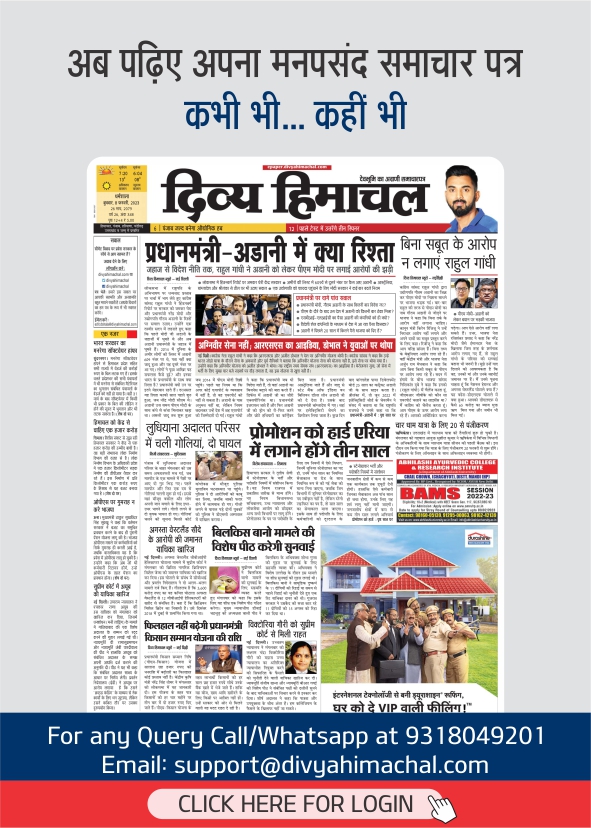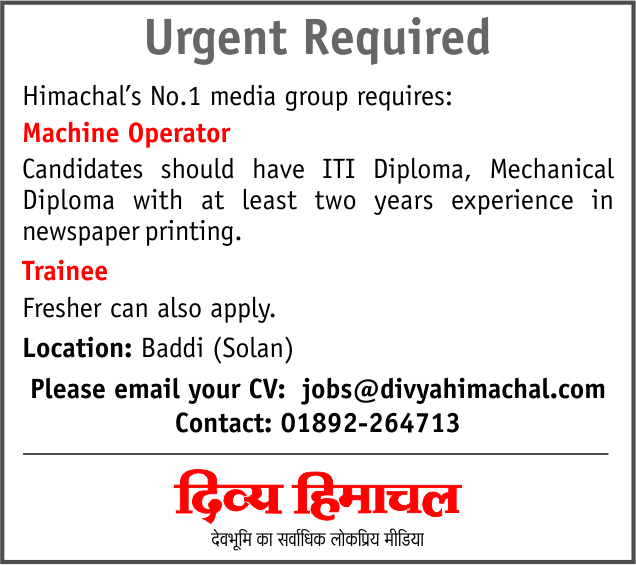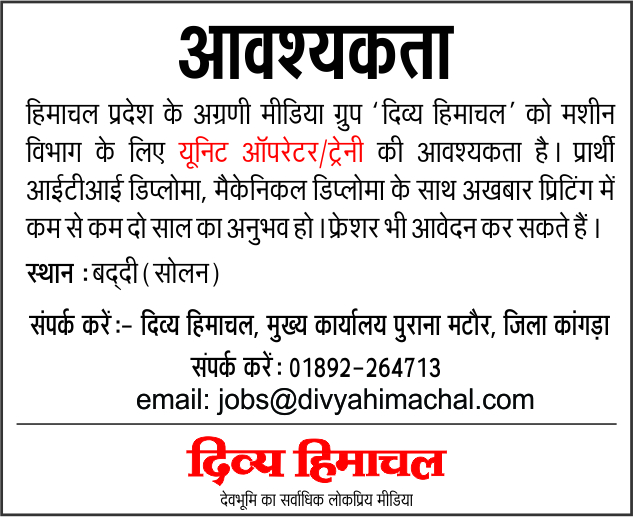Shashi Tharoor Deserves Applause For His Principled Stand On The Presidential System

Founder of Divya Himachal & Author of ‘Why India Needs the Presidential System’

This debate must not be allowed to get mired in partisanship. Nothing is more important than India’s democracy. Its health, performance and future should be above all politics. No country can rise with a poor system of government. For India to obtain its deserving place as a great nation, we must all take a hard look at our system’s fundamental weaknesses, and fix them while there is still time.
Anyone who believes that a leader would speak in favour of the presidential system only to help himself or his party, lacks a clear understanding of that system. Becoming president is extremely difficult, for one has to win across the whole country. Nor is that system an easy power grab. In fact, India’s current system is more suited for that purpose.
* PM Modi stands to benefit the most if India adopted the presidential system. He is by far our most popular politician. But… he would likely not touch that system.
PM Narendra Modi stands to benefit the most if India were to adopt the presidential system. He is by far the most popular politician in the country. But as I wrote in my 2015 book Why India Needs the Presidential System, published as he was coming to power, he would likely not touch that system. For two good reasons: one, the current parliamentary system is more suited for centralised control; and two, he would lose support if he immediately went for wholesale change in India’s Constitution. But it’s the former reason that makes me think he would not be in favour of the presidential system even in his next term.
* [M]any Indians still believe that the presidential system is one-person rule. It’s shameful how many of our leading thinkers continue to spread this misconception. The truth is just the opposite.
This was also the reason Indira Gandhi decided not to switch to the presidential system during the Emergency. Insiders such as Swaran Singh and AR Antulay advised her against the move because her autocratic rule would actually diminish. In 1994 Antulay admitted, “Indira Gandhi wanted to be a dictator… but you can’t be a dictator in a presidential system.”
Yet many Indians still believe that the presidential system is one-person rule. It’s shameful how many of our leading thinkers continue to spread this misconception. The truth is just the opposite. It is the parliamentary system that is designed for centralised unitary control. The very reason the presidential system was invented by the US was to divide and devolve powers in governments across a truly federal structure. That country’s 230-year history demonstrates that the presidential form of government provides far better protection from dictator-style leadership than its grandfather, the parliamentary form.
Tharoor’s advocacy of the presidential system is well thought out. He has written extensively on the subject, for two decades, starting in his book India: From Midnight to the Millennium. In his recent bestseller An Era of Darkness, Tharoor lays waste to the claim that the parliamentary system was a useful British gift to India’s democracy. “The parliamentary system devised in Britain,” he wrote, “assumes a number of conditions which simply do not exist in India.”
In a newspaper column during the recent state elections, Tharoor wrote, “If there ever were need for yet another clinching argument for a presidential system in India, it is the spectacle of the head of government abandoning the responsibilities of that office every few months to go on the stump for their party.” Earlier this year he gave a persuasive speech in Jaipur entitled The Case for the Presidential System. Tharoor declared that “changing to a presidential system is the best way of ensuring a democracy that works.”
Tharoor joins a long list of Indian thinkers who have spoken in favour of the presidential system. Bhimrao Ambedkar, for example, was one of the first to propose a United States of India, taking the American form of Executive as a model. “The parliamentary system would not do in India,” he wrote. Constitutional scholar Nani Palkhivala wrote in 1981 that “there were more advantages of the presidential system than its opponents concede.” In a speech in 1983, JRD Tata said, “I have advocated the switch to presidential system for many years.” Prime Minister Vajpayee said in 1998 that “we should discuss the merits of the presidential system.” Recently, in 2013, Rajiv Pratap Rudy, then general secretary of the BJP, submitted a resolution in the Rajya Sabha suggesting adopting many of the presidential features. In 2015, at the launching of my book, Shanta Kumar, member BJP Margdarshak Mandal, declared categorically: “Now we should have the presidential system in the country.”
A recent article criticises Tharoor for speaking out of turn within his party. A switch to the presidential system was not Congress party policy, the writer claimed, without citing any party officials. The article suggested that President Pranab Mukherjee is still speaking for the Congress, and that his remarks last week – that “a country as complex and diverse as India can be administered only through delegation of authority”– show that he is opposed to the presidential system. The author fails to understand that if delegation of authority is what India needs the most, the American model of independent state governments is the most delegated system in the world.
* The parliamentary system devised in Britain,” Tharoor wrote [in an ‘Era of Darkness’], “assumes a number of conditions which simply do not exist in India.
Let me mention some Congressmen who have been in favour of some form of the presidential system. Vallabhbhai Patel fought with Nehru to have directly elected Executives – President as well as Governors – in India’s Constitution. In 1963, a Congress stalwart and member of the Constituent Assembly, KM Munshi wrote that “if I had to make a choice again I would vote for the presidential system.” R. Venkataraman, former President, wrote in 1965, “The presidential system offers the best solution.” Vasant Sathe was after Indira Gandhi for years to adopt that system. Babubhai Patel, Chimanbhai Mehta, and BK Nehru are some other Congressmen who come to mind.
Dr. Tharoor is truly serving his nation, and his party, when he advocates that India switch its form of government to the presidential system. We must applaud his patriotic efforts, and do everything in our power to give him a helping hand.
Keep watching our YouTube Channel ‘Divya Himachal TV’. Also, Download our Android App













